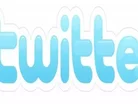Twitter is a vital link to patients

Japanese doctors have revealed that they used Twitter to save patient lives after the country was devastated by a massive earthquake and tsunami in March.
They said the social networking site is an excellent system for contacting chronically ill patients and a vital tool in notifying patients about where to get medication.
A series of letters were published in leading medical journal The Lancet from doctors across Japan discussing the healthcare consequences of the earthquake and tsunami.
READ MORE FROM THE WDM CONTENT NETWORK:
To read the leatest edition of Healthcare Global, click here
Happiness gene is revealed
Canadian bed bugs carry superbugs
First case of the Black Death appears in America
In the letters, doctors Yuichi Tamura and Keiichi Fukuds say they contacted 60 patients through Twitter telling them where they could get daily refills of pulmonary hypertension (heart failure) drugs after phone lines were damaged and unusable.
The ‘re-tweet’ facility also allowed the information to spread across the micro-blogging site rapidly: “We were able to notify displaced patients via Twitter on where to acquire medications,” the doctors said.
“These 'tweets' immediately spread through patients' networks, and consequently most could attend to their essential treatments.”
They added: “We directly contacted 60 patients and they re-tweeted to over 100. Some couldn't reach hospitals because they were living in disaster areas, so we took drugs to them using cars and, in one case, by helicopter.”
They also wrote: “Our experience has shown that social networking services, run concurrently with physical support, were significant in triumphing over many difficulties in the recent catastrophe.”
However, they also said that the time has now come for Japan to strengthen its primary healthcare resources.
Dr Jay Starkey from the University of Iowa, and Dr Shoichi Maeda from the Keio University in Tokyo, wrote: “Hospitals were unable to tend to patients with non-urgent but important needs such as treatment of hypertension, diabetes, gastroenteritis, and so forth. Japan needs to strengthen its primary-care system.”
SMS message services and social networking sites like Twitter and Facebook are being increasingly used by healthcare organisations across the globe to contact patients.
- More young doctors committed to profession since pandemicTeleHealth & COVID-19
- Facebook partners with NYU School of Medicine to revolutionise the MRI processTechnology & AI
- Jeremy Hunt takes on social media titans to reduce impacts on mental healthDigital Healthcare
- Facebook halts plans to data share with health facilitiesDigital Healthcare



